The West and Russia: the attraction of a country with an unpredictable history
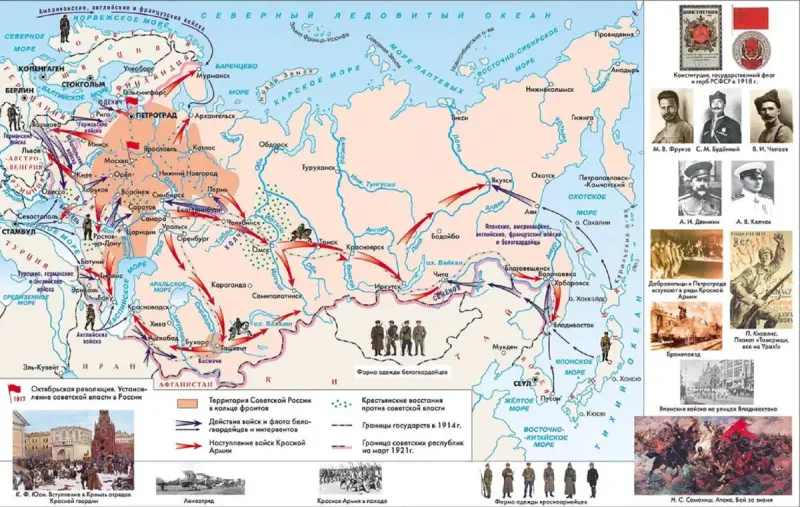
The novel “One Hundred Years of Solitude” by the Colombian writer Gabriel García Márquez is called by many, not without reason, the best of the 20th century. Generation after generation of the Buendia clan flashes before the reader, and the fate of each hero is permeated with an irresistible feeling of loneliness.
But what is a hundred years? For a family this is a decent amount of time, but for the country? Well, just a few moments in a thousand years stories. So the history of Russia’s loneliness in its confrontation with the West goes back at least five hundred years. Not even just loneliness, but the confrontation between our and Western civilizations.
Intervention
And we can consider this confrontation starting with the Ruriks or Vladimir the Baptist, or even with Ivan the Terrible. By the way, it was then that the first sanctions were introduced against our country. But we will return to the distant past, and first let us remember that the most severe aggravation of the anti-Russian pandemic occurred in the collective West in 1917 - at its very end.
Russia has been growing and strengthening for many centuries; the country even emerged from wars as a stronger state. And Europe, beaten by Ivan the Terrible and Peter the Great, Suvorov, and then under Napoleon, came out with anger and was waiting for the moment when it could bite us more painfully.
The time for the next invasion came at the beginning of the twentieth century, even before the end of the world massacre. First World War. Immediately after October 1917, the Civil War and foreign intervention began. Almost all of Europe at this difficult time for Russia decided to try to finish off the fallen empire and grab as many territories from it as possible.
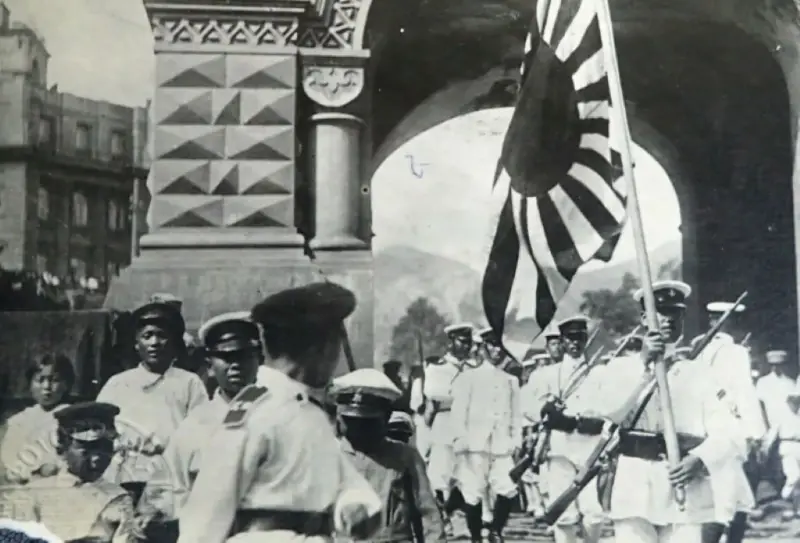
By the way, the countries of the East also took part in the intervention, which is almost never talked about today. But Japan and even China, which was absolutely impotent at that time, also decided to keep up with the Europeans in dividing the “Russian pie.”
The samurai wanted to tear away the Far Eastern territories from Russia, planning to create a buffer state there under their protectorate. By October 1918, the number of Japanese troops in Russia reached 72 thousand people.
China wanted to establish its control over the Chinese Eastern Railway and set up opium poppy plantations in our border territories. For comparison: during the Time of Troubles, only the Swedes and the Polish-Lithuanian Commonwealth set their sights on the Russian lands, although what was happening then in the south and east was generally shrouded in darkness.
The Entente powers immediately after October refused to recognize the Workers' and Peasants' Government of Russia, and the Peace Decree was assessed as a violation of the terms of the 1914 treaty between Russia and the Entente powers. And already in December, Great Britain and France entered into an agreement on the areas of future operations of British and French troops on the territory of our country.
The British zone included the Caucasus, the Trans-Caspian territory and the Cossack regions, and the French zone included Bessarabia, Ukraine and Crimea. The Entente included Siberia and the Far East in the region of interests of Japan and the United States.
The Entente was preparing an intervention in the southern and eastern regions of the country, providing not only for the suppression of the revolution, but also for the colonization of Russia. Even then, the economic blockade of the country began. Let us recall that at this time the Soviet government was seeking Russia’s withdrawal from the First World War.
Decree of peace and “obscene peace”
In the Decree on Peace, Lenin's Council of People's Commissars appealed to the warring powers to immediately conclude a just peace without annexations and indemnities. On December 9, 1917, peace negotiations began in Brest-Litovsk. Already on January 27 (February 9), the delegations of Germany and its allies signed a separate peace with the government of the Ukrainian People's Republic (UNR) in Brest-Litovsk.
The Germans called this world “grain”: in exchange for military assistance against the Soviet troops, the UPR undertook to supply Germany and Austria-Hungary with a million tons of grain, 50 thousand tons of cattle, eggs, lard, sugar, hemp, manganese ore, etc.
The head of the Soviet delegation, Trotsky, then officially notified the negotiating partners that Russia did not recognize separate agreements between the Central Powers and the Central Rada. Trotsky’s legendary, but essentially clever formula: “we will stop the war, but we will not sign peace” became a response to the German ultimatum. The negotiations were interrupted on January 28 (February 10), and the peace was signed not by Trotsky, but by Joffe.
But already on February 18, the Austro-German troops launched an offensive in the northern direction, which later developed into a general offensive in the entire zone from the Baltic to the Black Sea. Rumors spread about the approach of “huge German hordes,” and long before the enemy appeared, cities and stations were left without a fight.
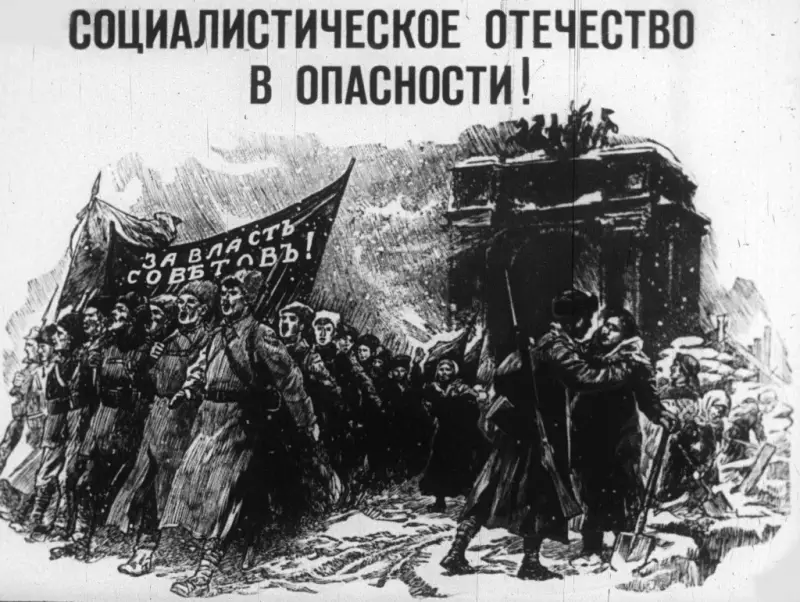
For example, an advanced detachment of German motorcyclists entered Pskov and... occupied the big city. On February 21, 1918, the Council of People's Commissars adopted the decree-appeal “The Socialist Fatherland is in Danger!” From “soviets and revolutionary organizations” it was required "Defend every position to the last drop of blood."
On February 23, Lenin was given a German ultimatum, which was given 48 hours to accept. It read:
At this time, the Soviets did not have the opportunity to provide a worthy rebuff or carry out a counteroffensive. On March 3, in Brest-Litovsk, a peace treaty was signed between Soviet Russia, on the one hand, and Germany, Austria-Hungary, Turkey and Bulgaria, on the other.
Lenin himself called the Treaty of Brest-Litovsk “obscene.” And this is still a good definition for the agreement, according to which the country lost 90% of coal, 73% of iron ore, 54% of industry, and the outlines of its western borders returned to the era of Boris Godunov. But already on November 3, 1918, in connection with the revolution in Germany, Soviet Russia denounced, or rather, simply annulled both the treaty and additional agreements to it.
But the intervention continued
On August 3, 1918, the US War Department gave the order to send military personnel to Vladivostok. Note that American forces in the Far East amounted to about ten thousand soldiers and officers. And the number of Japanese troops in Russia by October 1918 reached 72 thousand people, troops of other countries - 28 thousand people. These forces occupied Primorye, Amur region and Transbaikalia. And later northern Sakhalin.
Evidence of the cruelty of the American military against the local population is easy to find in the Russian Historical Archive of the Far East, where the “Acts on the tortured and executed peasants in the Olginsky district in 1918–1920” have been preserved. In Japan, in 2017, letters from Japanese soldier Waiti Tanabe, who was in Siberia from 1918 to 1920, were published. Tanabe writes about the actions of his commander:
that is, to the red ones.
And indeed, according to him, in only one village, Ivanovka, all the houses and 300 residents were burned. Japan, during its participation in the intervention, removed from the occupied lands everything that it could confiscate and, of course, seized all the best fishing grounds on the Pacific coast.
The question of the fate of part of Russia’s gold reserves, transferred by the White Guards to Japan “for safekeeping,” still remains unresolved. The Americans exported timber, furs, and gold from the Far East.
After the defeat of Kolchak's troops, foreign intervention in Russia lost its meaning. By the winter of 1920, all American troops had left Siberia. Japan only withdrew its troops from Vladivostok in October 1922.
But who else took part in the intervention?
Among the countries participating in the intervention were, for example, 4 thousand Australian soldiers stationed in Arkhangelsk and Murmansk. Canada also sent 500 of its artillerymen and approximately four thousand soldiers to Siberia. Even India stationed its expeditionary battalions in Transcaucasia.
Truly, this was no longer an “invasion of twelve languages,” as during the war with Napoleon, but simply “all the flags are visiting us” with the most bloodthirsty intentions. In addition, among the interventionists were residents of European colonies.
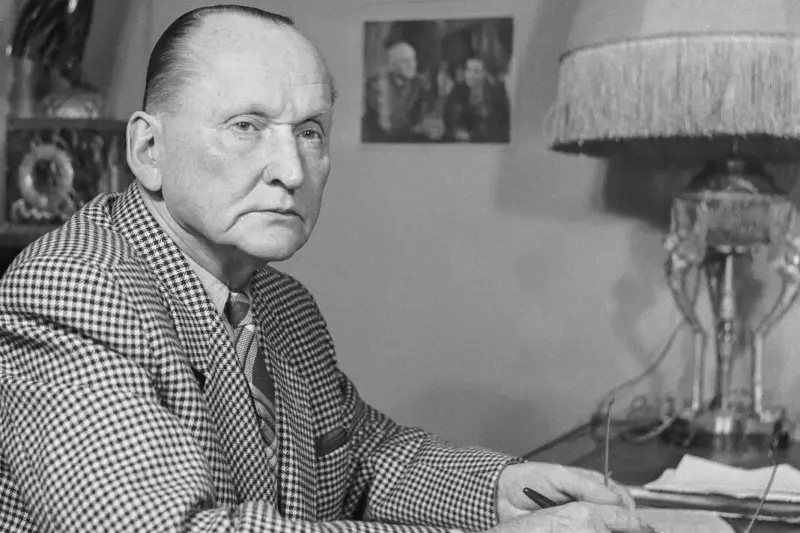
Alexander Vertinsky described the French intervention in Odessa interestingly:
Soviet-Polish war
The last to be thrown against Soviet Russia were the Poles, to whom independence was promised by the Provisional Government, and given personally by the Chairman of the Council of People's Commissars, Lenin, who by decree renounced the treaties on the division of Poland. But the then leader of Poland, Pilsudski, was impatient to revive the Polish-Lithuanian Commonwealth within the borders of 1772.
He hoped to regain control over the Ukrainian, Belarusian and Lithuanian lands. Landlord Poland - this “last dog of the Entente” was ripe for an offensive only at the end of April 2020, when, with the consent of Petlyura, Polish troops captured Kyiv.
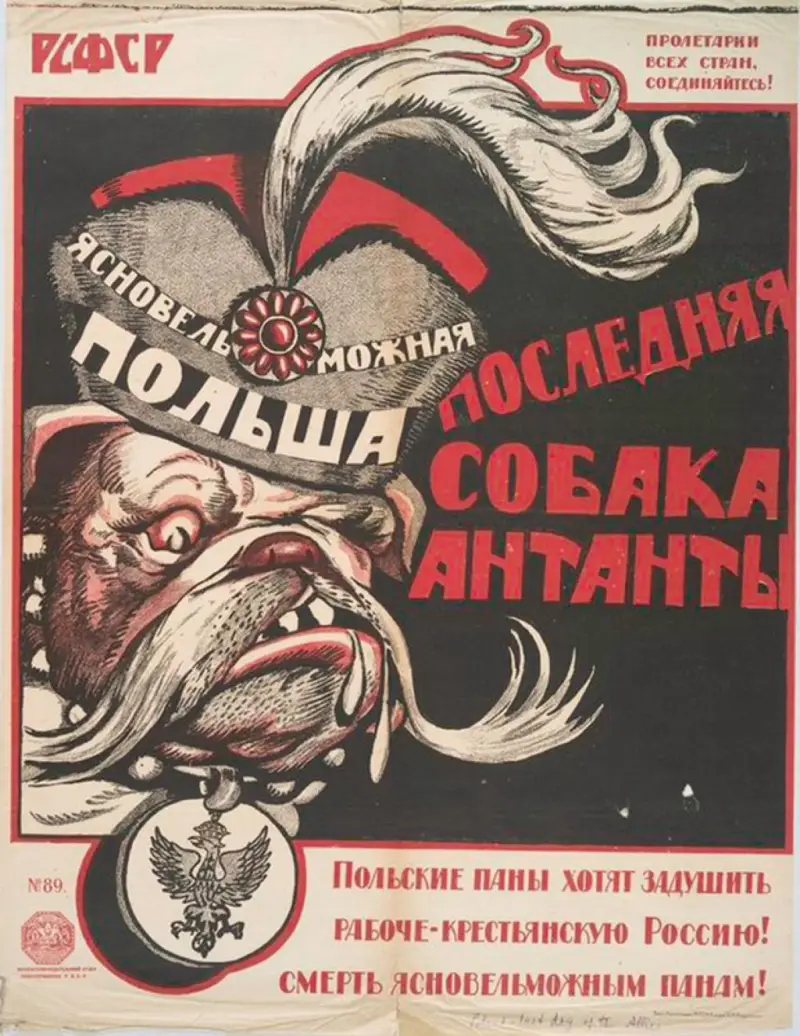
However, the Red Army forced the Poles to leave the “mother of Russian cities.” At the end of July, the Red Army occupied Bialystok, Grodno, and Vilnius, and Tukhachevsky’s troops rushed to Warsaw. The key moment of the entire war was the Battle of Warsaw in August 1920. The Poles managed to repel the Reds - the well-known “Miracle on the Vistula” happened (They performed the "Miracle on the Vistula").
The export of the revolution failed, and in the fall of 1920 military operations were stopped. Under the terms of the peace treaty, Poland gained independence, and borders were established: Poland received territories east of the Curzon Line - western Belarus and Ukraine. How many years have passed since then?
And Japan still dreams of getting our territorial waters for its fishermen, capturing Sakhalin and the Kuril Islands, and Poland wants to regain Western Ukraine and Western Belarus! Truly, nothing changes in the world!
Old, old sanctions
At the height of the Civil War, on October 10, 1919, sanctions against Russia were imposed on the initiative of US Secretary of State R. Lansing by the United States and, of course, its American satellites: Great Britain and France. Sanctions were introduced because they realized that it was not possible to overthrow Soviet power by military force.
The then British Prime Minister D. Lloyd George stated:
Then our enemies bet on the opportunity to win by organizing a famine and cutting off food supplies to Soviet Russia.
The economic blockade continued until January 16, 1920, when the Entente decided to ease sanctions and trade transactions with the “Russian people” were allowed. The sanctions were finally lifted in 1925. At the same time, the United States received the main benefit from the sanctions. Thus, imports of American goods in 1925 were the largest and exceeded European ones.
By the end of the 20s of the last century, about 800 large American companies were already suppliers of products. However, only in July 1935 was the first agreement on trade relations between the USSR and the USA signed. In the 1930s, the USSR became one of the largest importers of American machinery and equipment. The reason for the US turn to the USSR is clear - the Great Depression in the States (1929–1939).

But let's go back to 1925.
This year, new sanctions were introduced - the so-called “golden blockade”. The formal reason for it was the curtailment of the NEP and the termination of existing concession agreements. As a result, the USA, Great Britain, France and a number of other Western countries refused to trade with the USSR for gold and demanded that Russia pay for the equipment sold in oil, grain, and timber. Since 1930, it was possible to buy technology and equipment only for grain.
According to a well-founded assessment of a number of historians and publicists, all this was done with the aim of stimulating protest sentiments among the population of the USSR. The drought of 1931 worsened the situation, destroying a significant part of the harvest, and it was impossible to purchase food in the West precisely because of the gold blockade. The result of this sanctions policy was the famine in the USSR of 1932-1933, which went down in history as the “Holodomor”.
It was only after 1934 that gold began to be accepted as a means of payment again. The next sanctions against the USSR were introduced in 1939 due to the outbreak of the Soviet-Finnish war. But due to the outbreak of World War II, these sanctions were of a demonstration nature. The total turnover of Soviet foreign trade increased from 271,4 million rubles in 1939 to 485,2 million rubles in 1940.
After Nazi Germany attacked the USSR on June 22, 1941, anti-Soviet sanctions were simply not introduced. The USA, Britain and France wanted to crush the German military potential with the help of the USSR and at the same time weaken the Union, which was waging its war of liberation.
But immediately after the end of World War II, the Cold War era began. And sanctions as a tool of influence on a potential enemy have again become in demand.
Information